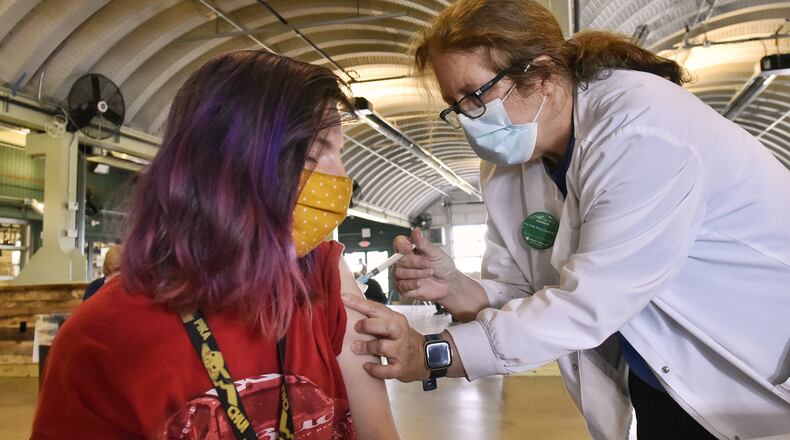“Many people across the state may be likely to decline vaccines like the COVID-19 vaccine for conscientious, religious or medical reasons,” she said. “Without the exemption provisions this bill provides, the notion of a vaccine passport could easily lead to a class system in Ohio where segregation and discrimination will proliferate.”
The bill, which does not identify any specific vaccine, allows individuals to decline any vaccine based on one of three exemptions — medical contraindications, natural immunity due to a previous exposure and reasons of conscience. It also prevents all entities in the state from what the bill calls discriminatory treatment of citizens based on their vaccination status.
“The purpose of this legislation is to allow people to choose to do what they feel is best for their own body and protect individuals from any consequences or hardships for choosing one way or the other,” said Gross, who also said she’s pro-vaccine.
“As legislators, we have a responsibility to protect our citizens from government overreach and prohibit practices in the private sector that subject Ohioans to discrimination when going about their daily lives.”
There are no vaccination requirements within the United States for residents and visitors, according to the Centers for Disease Control and Prevention. On Tuesday, White House Press Secretary Jen Psaki told reporters at a press briefing the Biden Administration will not support any “vaccine passport.”
While the United States is against this concept, some countries are using, or developing, such records, according to news reports.
White House Press Secretary Jen Psaki says the Biden administration does not support the idea of a federal mandate requiring Americans to carry vaccination credentials. More here: https://t.co/CuY0qyKv2v pic.twitter.com/XF2D6eHK1g
— Reuters (@Reuters) April 6, 2021
“The government is not now, nor will we be supporting a system that requires Americans to carry a credential. There will be no federal vaccinations database and no federal mandate requiring everyone to obtain a single vaccination credential,” Psaki said.
Some private companies and nonprofit organizations are considering, however, some type of COVID-19 vaccination credential, according to multiple news outlets.
House Bill 248 would not change any of the school requirements, nor their ability to require vaccines, said Gross, “but it does make sure the schools are informing parents that they have the right to decline, and prevents them from discriminating against children who aren’t vaccinated (or only partially vaccinated) by singling them out or labeling them as such.”
Since the onset of the pandemic in March 2020, Ohio has seen more than 1 million cases as of Wednesday, with nearly 19,000 Ohioans dying from the virus. Nationwide, there have been 30.8 million cases with more than 556,000 deaths.
In Ohio, nearly 3.8 million people have started the inoculation process, which includes more than 108,000 in Butler County. More than 2.2 million are fully vaccinated, including more than 58,000 in Butler County. Nationally, 108.3 million have started the vaccination process and about 63 million are fully vaccinated.
House Bill 248 has yet to be assigned a House committee.
About the Author

